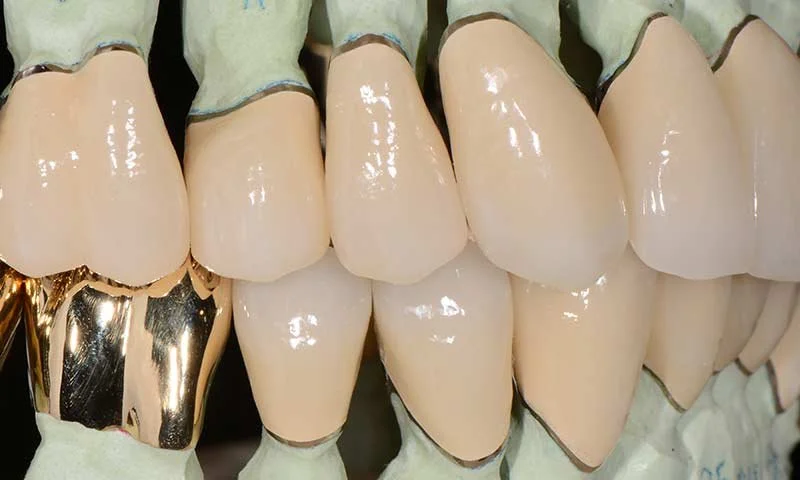Porcelain Fused To Metal
O’Brien Dental Lab has been fabricating porcelain fused to metal restorations since 1969. However, the PFMs we currently fabricate exhibit improved fit and function as a result of our innovative manufacturing techniques and meticulous attention to detail.
The internal adaptation and marginal fit of the metal framework are critical factors in the longevity of a PFM restoration. Utilizing our proprietary TRUfit® system, we digitize models, virtually design restorations, and mill the most accurate wax patterns possible from a solid block of wax. This eliminates the distortion from shrinkage that occurs with a conventional wax-up. Accurate wax patterns are vital for a successful PFM.
Our PFM copings and frameworks are cast with a pressure-vacuum induction casting machine. The alloys we offer were extensively researched for compatibility with our dental porcelains. Coefficient of thermal expansion (CTE) compatibility and creation of an oxidation layer are crucial to maximizing the mechanical, chemical, and compressive bond.
Accurate firing cycles and temperatures are critical to maximizing the optical and physical properties of any porcelain. We employ the highest quality porcelain furnaces that self-regulate and calibrate in order to consistently and accurately fire our porcelain restorations. Next, our technicians refine anatomy and develop proper occlusal contacts. Stain and glaze is applied as a final step in the manufacturing process.
Finally, designated quality standards personnel verify your case meets our ISO and DAMAS specifications.
Your prescription is reviewed and the fit, margins, contacts, and occlusion are inspected under magnification. Interproximal contacts are checked on solid models, and margins are verified on separate margin dies whenever multiple pours can be accomplished.
Shade photos can be uploaded on our site or via your My O’Brien account.
Production time is seven days in lab.
“There is still great demand for PFMs and I believe there always will be. That’s why I am constantly seeking to develop the best manufacturing techniques and researching the latest materials available for the porcelain to metal technique.”


